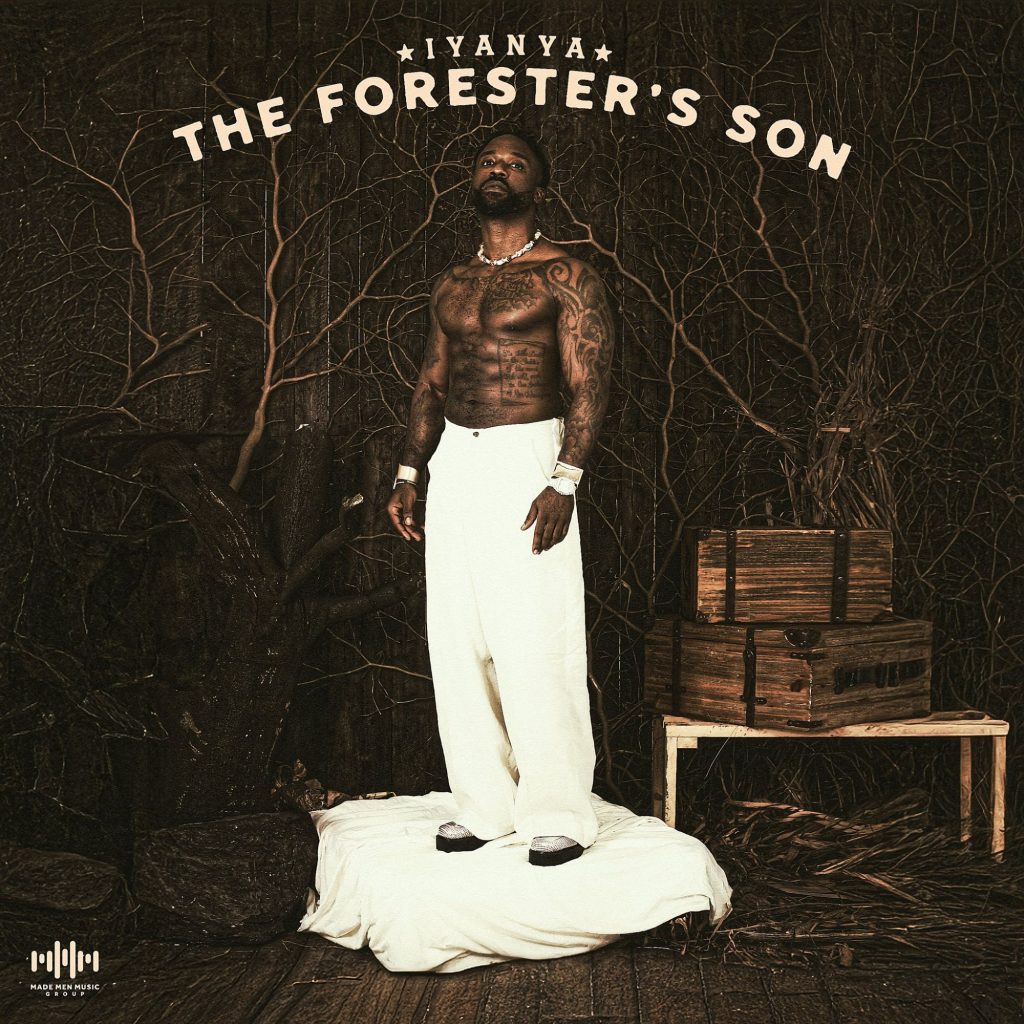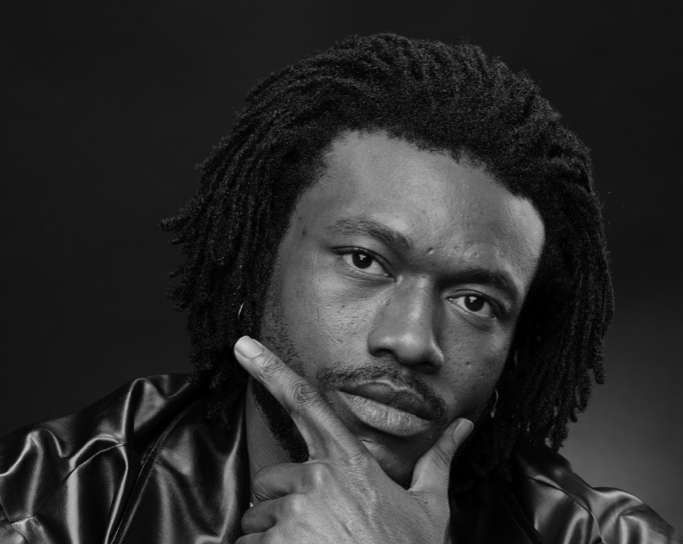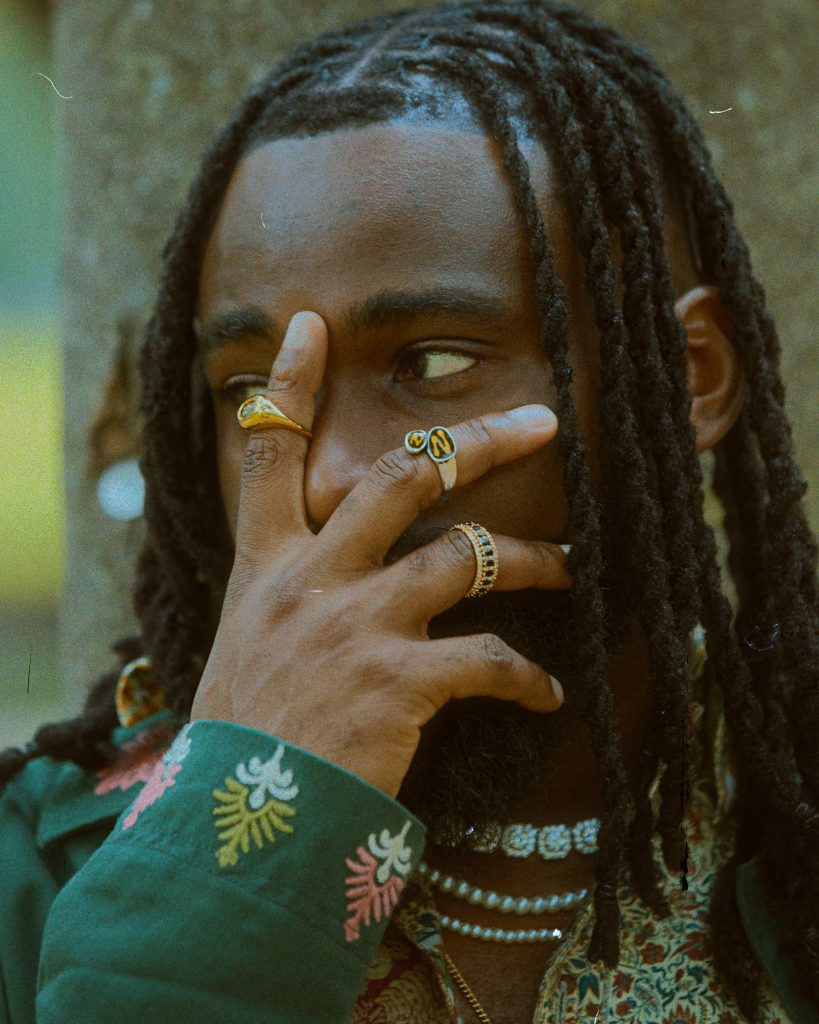Davido is a prolific hitmaker. That’s the bedrock and foundation his success has been built upon and as an astute musician, he knows this more than anyone else and utilizes his strengths to craft chart-dominating singles. And in a past decade where the industry was a singles market, it’s no wonder why he thrived so much.

Asides from Olamide, who is arguably the most culturally influential artist of the last decade, there is no one amongst his peers that can go toe-to-toe with Davido hits for hits. Ever since breaking out into the mainstream with the Shizzi-produced, Dami Duro—the popstar has been notorious for scoring a number of hit records year after year. But in a way, maybe that has come at a detriment to his overall discography.
Unlike Davido, the same thing can’t be said about Olamide. Asides his numerous hit records and pop culture impact on the streets and mainstream, the artist doesn’t only have multiple great albums but a handful of classic ones. For Davido’s detractors, this has always been their major criticism of him. The lack of a stellar body of work, an album that isn’t polarizing and is largely acclaimed as a classic. After a decade, some years and 3 albums, Davido despite being an all-time-great doesn’t have a classic album and so there is definitely some substance in having to rectify that with Timeless.
Yes there are some ‘classic shouts’ for A Good Time, the artist’s sophomore album but it’s mostly within his stanbase and rarely outside that demographic. Besides, on a sonic level, the album was only decent and doesn’t have the sort of unifying sonic cohesion or thematic direction that most classics have. So, enter Timeless. The fourth studio album coming 3 years after Davido’s largely critically-panned album in A Better Time. Like Wizkid needed to prove a solid point with Made In Lagos, three years after the divisive and mixed receptions to Sounds From The Other Side, Davido also needed to prove a point here and I think he did to a good degree.

As iterated earlier, Davido’s strengths as an artist is hitmaking. He knows how to put together catchy choruses, with memorable one-liners and even slangs that would undoubtedly grow on the listener and resonate largely with the mainstream. The issue is that as much as this is his saving grace as an artist, it’s also been his Kryptonite on past albums. Davido previously approached album making with a mindset of lumping pop singles together, that each have the potential of taking off as hit singles due to their simplicity, but have no place being on a project together.
You see, an album is supposed to be an experience. That’s why metrics like sonic and thematic cohesion is important. Boy Alone and Mr. Money With The Vibe aren’t the best pop albums last year, just because they have great songs. There is that and also the fact that the songs sound great together, and contributes to a rewarding album experience. There is a cohesion—vital sonic elements that unify all the songs on the album, thus making it feel like an wholesome experience, as opposed to sounding disjointed and harried like songs on a poorly curated playlist.
On A Good Time and A Better Time, there was a lack of cohesive intention from Davido and whilst some good albums might thrive off sonic variety from time to time, these ones have suffered for it because the songs weren’t so great either. On Timeless though, Davido seems to have learnt from most of his mistakes and it results in his best album yet.

Over Dem is pure, unadulterated Davido. Catchy, repetitive chorus with a resonant theme and a David and Goliath dynamic. Trumpet horns and reverbs permeate the mid-tempo pop beat, as the artist turns into his own hype-man. Expressing gratitude for his greatness, proclaiming his greatness and even celebrating family, giving props to his uncle triumph in the Osun Gubernatorial elections. As a stand-along song it might not be much, but as the opener to an album that’s supposed to assert his greatness, it’s the ideal intro.
Feel kicks things up a notch in tempo, as we arrive on the prominent sonic atmosphere of the album that’s built on Amapiano elements of log drums and ratchet shakers. The song isn’t much in the way of a statement like Over Dem, but it excels on a sonic level because of Blaise Beatz lush production and Davido’s heartfelt writing, despite it being an Amapiano cut. “Water full my eyes, but I’d be alright“, Davido sings, painting a simple but vivid picture of his emotional vulnerability on the record.
The momentum of the album keeps building with the soulful In The Garden ft. Morravey, one of Davido’s newly signed artists to the new era of DMW. At first listen, this song was this writer’s favorite song on the project. It initially starts at an R&B-esque pace with Morravey opening the track with her emotive vocals and confessional writing, before the log drums kick in during the chorus and the beat structure is flipped into a pop one.

It’d be easy to say Morravey outshone Davido on this track and there is indeed some substance to that, but there is nothing wrong with the established act giving the reins to the upcoming one to shine through and do their thing. That’s one of the reasons Essence worked so well. Wizkid let Tems do her thing and was comfortable being on the backburner. Besides, Davido himself wasn’t underwhelming on the track. His delivery was impressionable.
This writer believes Godfather is a filler track. Not because it sounds horrible, but it doesn’t do enough or stand out uniquely amongst the other Amapiano cuts on the project. The fact that it comes so early in the album and temporarily kills the momentum built over the stellar opening 3 tracks is the first falter on the project. Fortunately, Unavailable follows right after and the album returns to its positive trajectory. Featuring up and coming, South-African star Musa Keys, it’s a fundamental Amapiano bop that does it basics and excels. It’s definitely gonna set dance floors across the continent on fire.
Davido explores dancehall on Bop alongside Jamaican artist, Dexta Daps and it’s yet another filler track that probably shouldn’t have made the album. There is nothing wrong with the occasional deviation from the sonic soundscape of an album, but said deviation needs to be justified with a an incredible record to provide a breather and Bop doesn’t do that. Like Godfather, it’s not exactly a bad song but Davido’s delivery is too typical of him, that you’d swear you’ve heard something similar one too many times from him in the past and there was little Daps could savage.
E Pain Me explores unrequited love and its overly simplistic structure will work for some and alienate some others. However, it’s cliche and minimalist beat structure doesn’t do much in helping it. “Gbedu Dey Body, I been doing this e don tey” Davido reminds us all of his track record of being a reliable hitmaker on Away and this song could have easily fell to the same mediocrity of the 2 tracks preceding it, but it’s the immersive Amapiano production of Magic sticks that saves it. It’s infused with synth-pop/EDM type synthesizers that breathe a new life to the Amapiano atmosphere.
The sentiment on Precision is uncensored Davido, like it was on the album opener but the placement of the song right after the previous song is an issue. After the first 3 tracks, the transitions on this album haven’t been smooth and have been abrupt at times. Fave delivers a top 3 guest performance of the album on the stellar-konto infused record, Kante. Davido matches her energetic performance on the song and whilst he might not have the same infectious lines, his flows are good and he holds his own quite well.
The album ventures into highlife on the 1da Banton produced, Na Money with the Cavemen setting the scene with a trademark soulful performance. Angelique Kidjo is equally impressive on the record and does her thing also, however the lead artist isn’t as comfortable as these other acts. It’s another song that was shoehorned in for the sake of sonic diversity. Variety in an album isn’t bad, but if it’s on a soundscape where the lead artist was underwhelming, then the pay off can’t be great.
U (Juju) is yet another filler track, that whilst not being bad because it has decent outings from Davido and Skepta—it doesn’t do anything sonically unique in comparison with the best songs on the album and isn’t memorable either. It is very forgettable, because nothing on it really sticks from a sonic standpoint.
No Competition ft. Asake is a top 3 song on this album and arguably the best song off the project. It would come as a surprise to most that the Asake feature would be used on a mellow, R&B record with plucked guitar chords and thumping kicks—as opposed to an Amapiano cut, where the artist has thrived the most of his career but it turned out to be a ingenious decision, as the artist’s versatility ensures he still delivers one of the best verses out this year. Granted it was co-written with his label boss, but Asake’s verse is pure, sublime poetry delivered in Yoruba and Davido doesn’t have to do much in the way of a chorus to compliment that.
There are mixing lapses on the Lagos Olori-assisted, Picasso—where the newly signed artist’s vocals slightly sound distorted and distant, in contrast to David’s. It’s an issue that dampens the listening experience and while the song has an impressive chorus and overall production, it’s yet another track that wouldn’t be missed if it was left out on the album.
For The Road is elevated by Blaisebeatz production and the heartfelt, relatable sentiment of the chorus of having one last dance with a romantic interest, just before they leave will tug at heart strings. It has the potential of becoming a deep cut for the album. The album closes out with LCND, which is the closest we get to see a vulnerable Davido who has navigated so much pain and trauma in the past few months. Fans might be disappointed he didn’t delve deeper into those emotions and portray even more vulnerability, but that’s ultimately his decision and not a bad thing in itself. You can’t judge music for what it’s not, you judge it for what it is.

“I get many things wey i want to talk about, wetin my eyes see my mouth no fit talk am” Davido sings, attesting to the grueling nature of grief and pain in the simplest way possible. People process their grief and harrowing feelings differently. For some, they find therapy by expressing themselves in their music. For some, they find reprieve by escaping into the music that provides escapism from their travails.
Davido happens to belong to the latter and LCND not only works because of that, but it’s also a genuinely great composition across board. It’s also no mystery why Champion Sound was included on the project, as opposed to Stand Strong. The latter might be more thematically fitting, but the former is more sonically fitting as an Amapiano record.
The intention behind this album is commendable. It’s pixel clear Davido wanted to give the listener the album experience of a sonically cohesive soundscape and he did on an Amapiano-fusion one, drawing inspiration from Asake’s critically acclaimed debut album and even employing the services of the producer behind that to build it. Yes, Davido is one of the first few Nigerian acts to hop on the South African genre, even before Asake but he’s not taken that approach to a pop album until Asake’s success. Taking pointers from an up and coming artist as an OG is a necessary skill to evolve.
All-time greats like Davido, Wizkid, Tiwa Savage, Burna Boy and Olamide can’t look up for inspiration because they are the pinaccle of greatness. However looking down at fresh acts doing divergent succesful stuff and getting pointers from that to evolve with the times is totally justified. However, this album didn’t need to be 17-tracks long. Davido seems to have an unhealthy obsession with that number, as every album of his has had the same number of songs and suffered because of it.
Songs like Godfather, Bop, E Pain Me, Precision and Picasso don’t do much for the album except being filler tracks that pad up the runtime and detract from the peaks of it. This album could have been stellar if it was 11 or 12 tracks long, as the peak and momentum would be sustained over larger periods. After the Amapiano run of tracks 2 – 5, the transitions also became forced and were jarring to the ears, at times. There was also slight mixing issues here and there, so it’s definitely far from a perfect record and certainly not a great album.
It is a good album though that has more than enough great songs to sustain it and produce hit records. With time, it could even become a classic record as it won’t be the first time a decent album would age really well, despite it not being stellar on a sonic level. And if that does happen, no one would be happier for Davido than this writer, because no one deserves success more than a genuinely great human being.
Verdict:
Sonic Cohesion: 1.5/2
Unharried Transitions: 1.3/2
Expansive Production: 1.6/2
Songwriting: 1.3/2
Optimal Track Sequencing/Topical Progression: 1.3/2
Total – 7/10.
–This review is written by T.J. Martins, an ‘Album Talks writer.






